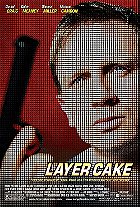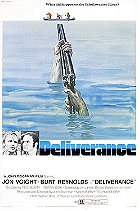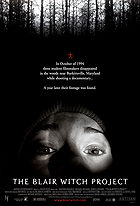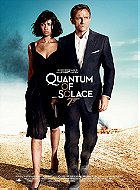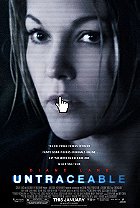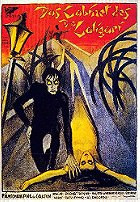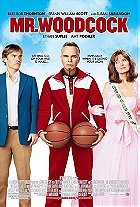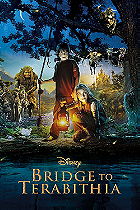Epic in the truest sense, Baz Luhrmann's much-hyped Australia is a film that exhilarates with its grand themes and physical grandeur. Fundamentally the Australian response to classic war epics like Gone with the Wind and Lawrence of Arabia, Luhrmann's majestic motion picture is to date the most expensive Australian production in the country's history (with the budget rumoured to have elevated to about AU$160 million). Australia is Baz Luhrmann's ambitious, large-scale vision. The filmmaker has taken heed of his own mantra from Strictly Ballroom - that a life lived in fear is a life half lived. Luhrmann has gone for broke and the product, while true to his vision (which he passionately strived to accomplish over several gruelling years), will undoubtedly divide opinions. The film is marvellously shot and competently crafted (every cent of its budget appears on-screen); however it's also somewhat overlong and periodically ponderous. But bloody oath - Australia is a magnificent movie and an engrossing experience.
The tremendous hype preceding the film's eventual release is practically the ocker counterpart of the hype which engulfed the lead-up to The Dark Knight. The Australian tourist industry had hoped for Luhrmann's film to act as an effective tourism vehicle. The expectations for the movie were beyond preposterous. As much as it pains me to say, Australia doesn't entirely live up to its hype and it isn't an instant classic. To a degree it's fairly disappointing if you consider the continuous delays, its problematic production period, and Luhrmann's complete commitment to his project. But I kid you not - regardless of the slightly disappointing result, Australia is dead set one of the best Australian films of all time. Strewth.
Without being the second coming, Luhrmann's lavish saga of another two star-crossed lovers is everything he always promised - a sweeping, extravagant epic reminiscent of Gone with the Wind and Lawrence of Arabia with a hint of Howard Hawks' Red River. Laughs, tears, action, drama and visual splendour flourish in this genuinely stirring homage to classic war epics. Fear not - despite being a love story set against the backdrop of World War II, Australia never even remotely attempts to emulate Michael Bay's atrocious Pearl Harbor (and it's all the better for it). The script (constructed by Luhrmann with writing mates Stuart Beattie, Ronald Harwood and Richard Flanagan) is a rich tucker bag containing an anti-war message, thematic material about the Stolen Generations, and an abundance of typically Australian material.
Set within a two-year period between 1939 and 1941, Australia chronicles the escapades of two lovers in rural outback Australia. Lady Sarah Ashley (Kidman) becomes suspicious of her husband's stalling with the selling of their newest asset; a property known as Faraway Downs in Australia. Lady Ashley departs from England, bound for the Northern Territory to take matters into her own hands. Upon arrival in Darwin she is met by an unnamed man merely referred to as The Drover (Jackman). During an overland journey to Faraway Downs, the two develop a mutual dislike for each other (their arguing and the apparent culture clashes evoke memories of such films as The African Queen and Rooster Cogburn). Following an unexpected series of events, it's revealed that ruthless station manager Neil Fletcher (Wenham) is plotting with cattle baron King Carney (Brown) to acquire and take control of Faraway Downs. With the intention of saving her inherited property, The Drover agrees to help Sarah drive 1500 heads of cattle across the treacherous, desolate desert terrain to Darwin where they will be sold to the army. However, their herd of cattle must reach Darwin before Carney can sell his herd. In the meantime, the Japanese forces begin mobilising for the devastating attack on Darwin.
Beautifully implemented and absolutely breathtaking in scope, Australia is the definitive feather in Baz Luhrmann's filmmaking cap. Forget Romeo + Juliet, Strictly Ballroom and the surprisingly mediocre Moulin Rouge! - this is the one Baz will be remembered for. Whether Australia is deemed an epic flop or an epic masterpiece, it's still history in the making.
This much-stalled project initially starred Russell Crowe, and then Heath Ledger took the leading role before Hugh Jackman was eventually cast. This was just the first in an extensive succession of quandaries that inundated Australia's production prior to it finally reaching the big screen. Filming was delayed a few times, and then the principal photography period ran for about nine months. As the marketing campaign commenced mid-2008, delicious stories were abundant in relation to the editing process. Despite almost a year of post-production, Luhrmann and his team had to race against time in order to have the film delivered on time for its world premiere. In fact, Luhrmann applied the definitive touches merely days ahead of the premiere. Surprisingly, Australia looks incontestably assured on-screen.
Only dragging every so often during the 165-minute journey, Luhrmann's elaborate Aussie postcard is truly a marvellous visual feast to behold. Luhrmann predominantly avoids overusing CGI. He reserves most of the more expensive special effects for the spectacular bombing of Darwin. For its budget, the film delivers solid CGI. Luhrmann accomplishes the best results, though, from shooting to scale on location. The cattle driving sequences (utilising genuine animals as opposed to computer-generated cows) are reminiscent of the John Wayne golden years (think Red River or The Cowboys).
As we've naturally come to expect from Baz, the director makes maximum use of music. David Hirschfelder's marvellous score is poetic and atmospheric. It suits the mind-blowing cinematography and it perfectly encapsulates the ruggedness of the outback. Not only is Hirschfelder's score included, though... It's a commendable leap of cinematic faith to weave into this rich story the most familiar song from The Wizard of Oz - i.e. Somewhere over the Rainbow. Use of this song makes it an iconic and emblematic glue for the cultures and the dreams of the characters. For my money, this is the film's most sophisticated and complex element; it's a wonderful piece of creative brio. Crikey, it's bloody effective.
Hugh Jackman and Nicole Kidman may be heralded as the film's primary stars, but the actual star of this sprawling epic is the landscape it dotingly illustrates. It's enthralling to witness the majesty of a herd of wild brumbies galloping across the dusty plains... Or stampeding cattle trotting across the barren red earth; pounding hoofs melded with the intense percussion of Hirshfelder's arresting music. The stunning rock formations, the scorched desert, the flocks of hopping kangaroos, the contrasting waterways, and the magnificent sunsets are all shot to perfection by Mandy Walker. Catherine Martin's meticulousness in the costumes and production design is alluring and impressive. A viewer becomes absorbed by the power of the land and the mystical virtues it emanates. Towards the film's conclusion, the majestic scope of Baz's vision never impairs the story. He remembers Australia is all about a solid story, and it's not just a visual exercise. He finds the perfect balance (Terence Malick should take notes).
Luhrmann's three-hour Aussie tourism commercial stars almost every Australian actor that's still working. At centre stage, Jackman and Kidman are an ideal couple. Hugh Jackman exudes charisma and charm, never striking an incorrect posture and never delivering a dud line. With shirt on or off, the actor represents the quintessential Australian bloke...he's the Drover With No Name.
Nicole Kidman delivers her finest performance to date as the snooty upper-class English aristocrat. But the chemistry between Kidman and Jackman is underwhelming. Their spontaneous dance in the outback and kiss in the rain seem merely perfunctory for the sake of a love story. However as individual actors, their respective character portrayals are credible and stunning.
Young twelve-year-old Brandon Walters as young Nullah is indeed a rare treat. It is his voice that tells the story behind Australia - encompassing topics like spirituality, greed, discrimination, love and war. Walters is wholly believable in the role. David Wenham is terrifically sinister and suitably menacing as the villain. Bryan Brown makes an appearance as the scheming King Carney. Also in the cast are such Aussie actors as John Jarratt, Ben Mendelsohn, Barry Otto, Bill Hunter and Bruce Spence. All appear reasonably briefly, but they're recognisable and uniformly excellent. However the performances from the lesser known actors are wonderful revelations.
There are a number of missteps, though. At a mammoth 165 minutes it at times seems like a work-in-progress. Even with the endless edits and the prolonged post-production period, there is a lot of narrative flab. Then again, both Gone with the Wind and Lawrence of Arabia suffered similarly from being narratively inept at times. It isn't necessarily boring, but there's a lot of excess. The ending is also contrived and is added for the sake of a happy ending. It's quite unsatisfying, and shows Baz isn't willing to pull the rug out from underneath his unsuspectingly audience. For the final fifteen minutes he plays it safe, which is slightly detrimental.
In addition, Baz overuses slow motion. In all likelihood, the disproportionate amount of slo-mo extends the movie's runtime by approximately half an hour. A majority of the sweeping slo-mo shots of the Australian outback reek of self-indulgence.
Australia has opened to an extraordinarily tough reception. The film will unquestionably be a difficult international sell. Aussie clichés and slang are in large supply. The thematic material may also throw an international audience. The stolen generations, racial tension, and Aboriginal Dreamtime are among the topics weaved into the story. Nulla even uses Aboriginal "magic" at times which may appear silly to those unfamiliar with Aboriginal history. This reviewer abhors the bloody drongos who dislike the film purely for its Aussie themes. You've gotta give it a fair go.
All things considered, Baz Luhrmann's Australia is a stirring ode to his home country that unites kangaroos, didgeridoos, the outback, a cattle drive, Japanese air raids and Hugh Jackman's abs. This anxiously anticipated film isn't a perfect 5-star tour de force, but it certainly isn't the below-average failure several people have dreaded. The detail which permeates Luhrmann's project is staggering, and probably impossible to fully appreciate upon a first viewing. As the credits roll, we take with us the breathtaking imagery of a distinct, vast land, as well as the unforgettable face of an innocent boy whose culture is slowly growing invisible. A lot of people are going to hate the movie, and to an extent their hatred is justified. I, however, respectfully disagree - Australia is a true blue, fair dinkum Aussie masterpiece. You can relax and get some sleep now, Baz. You did it.
Lady Sarah Ashley: "Just because it is...doesn't mean it should be".
8.6/10
 Login
Login
 Home
Home 183 Lists
183 Lists 1664 Reviews
1664 Reviews Collections
Collections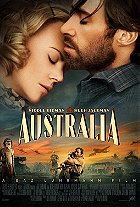
 0 comments,
0 comments, 